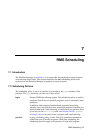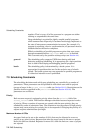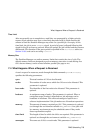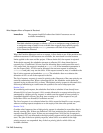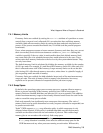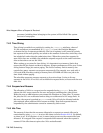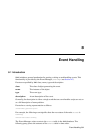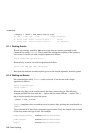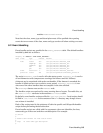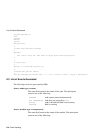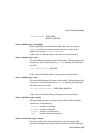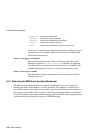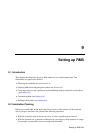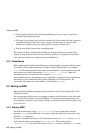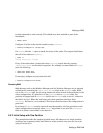Introduction
$ rmsquery -v "select * from events order by ctime"
id name class type ctime handled description
---------------------------------------------------------------
20 atlas0 node status 05/04/01 15:53:02 1 running
21 atlas0 node status 05/05/01 11:27:29 1 not responding
8.1.1 Posting Events
Events are normally posted by RMS servers but they can also be generated by the
command line utility rmspost. This is useful for testing the response of the system to
rare events. It can be run with a single argument as follows:
rmspost "
class:name:type:description"
Alternatively, it can be run with 4 arguments as follows:
rmspost class name type "long description"
Note that the multiple word description, given as the fourth argument, must be quoted.
8.1.2 Waiting on Events
The command line utility rmswait waits on events. It can be run with a single
argument as follows:
rmswait "class:name:type"
rmswait ":name:"
Alternatively, flags can be used to specify the class, name and type. The following
example specifies the class with the -c option and the name with the -n option. The -t
flag is used to specify the type of the event.
$ rmswait -c node -n atlas0
rmswait completes when a matching event is posted, after printing the event details on
stdout.
Two events match if their class, name and type are same. They also match if one or more
of the class, name and type is null. For example:
node:atlas0:status matches node:atlas0:status
node::status matches node:atlas0:status
node:: matches node:atlas0:status
8-2 Event Handling




